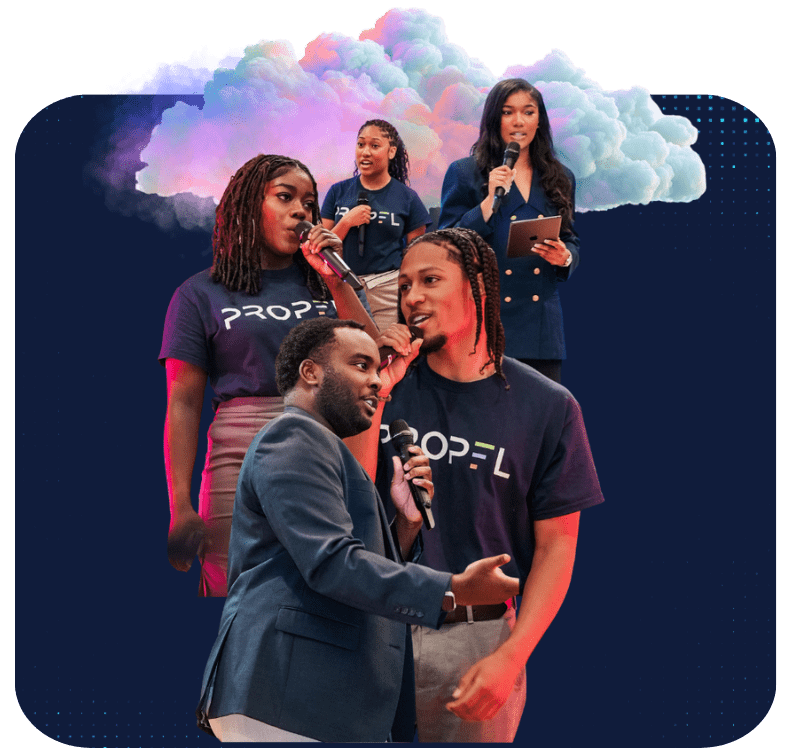Let’s shape your future, together.
At PROPEL, we believe your ideas have power. We support HBCU students with career exploration, scholarships, and real-world innovation experiences that help turn potential into opportunity.

Multiple Pathways to Your Success

Challenges
Applied-learning accelerator programs offer unmatched hands-on experience in technology. Learn more about the Future of Tech Innovation Challenge.

Online
Experience PROPEL U, our signature learning and micro-credentialing platform designed for upskilling HBCU students seeking innovative, future-ready career opportunities.
Where HBCU Students belong, and propel.
.png)


Cybersecurity Accelerator
A year-long immersive experience designed for 3rd and 4th year students to advance their skills, knowledge and career preparedness. Students gain access to industry leaders, tools, training, and the latest resources, enabling them to emerge as highly competent professionals ready to tackle the challenges of the cybersecurity industry.

Pioneering Health Tech Accelerator
Designed to support and foster the development of innovative solutions, technologies, products, or services within the healthcare industry. Leveraging challenge-based learning, students pitch solutions to issues related to health disparities and global health issues.
Discovering Your Professional Superpowers
"Discovering Your Professional Superpowers" is a PROPEL Learn course designed to equip students with unparalleled insights for navigating the intricate job market. This pioneering initiative empowers students to harness their distinctive and unparalleled abilities, fostering a profound understanding of their professional strengths as they embark on their professional journey to success.
Student Spotlight
Elevating the voice talent and vision of scholars across the nation

Sanaa's extensive involvement with PROPEL showcases her as a dynamic ambassador. From moderating discussions with Dave East on IG Live to speaking at recruitment events and participating in the Arts & Entertainment Accelerator, she proudly includes PROPEL in her diverse activities.
As a third-year English major at Spelman College with a 3.7 GPA, Sanaa excels academically and is engaged in various leadership roles, including President of HBCU DREAM, Vice President of Morehouse NABJ, student member of the Atlanta NABJ chapter, and Secretary of Spelman’s campus news publication. Her commitment reflects a passion for community relations, communications, and transformative leadership.





.png)
.jpg)
.jpg)
.png)